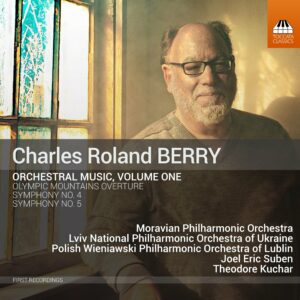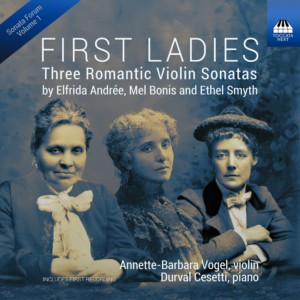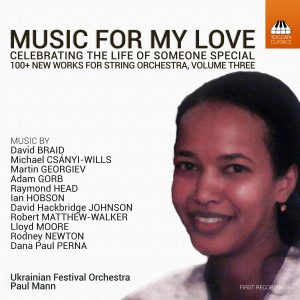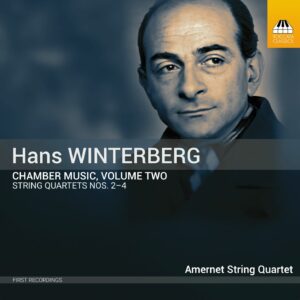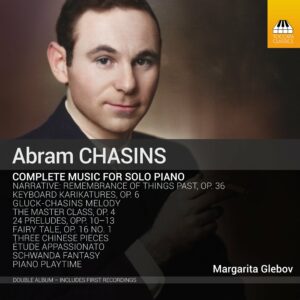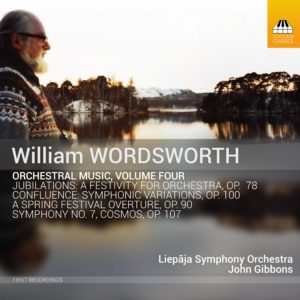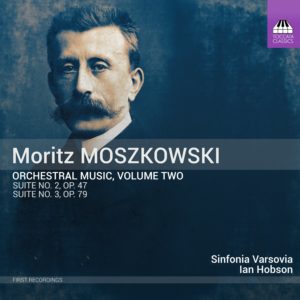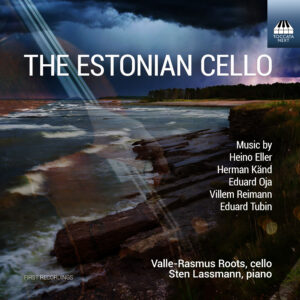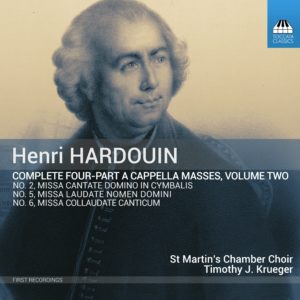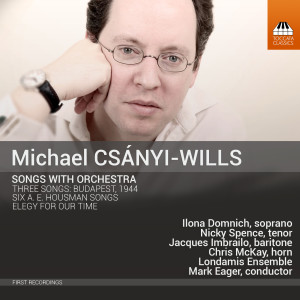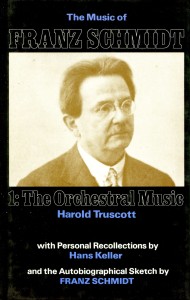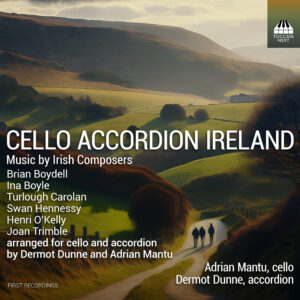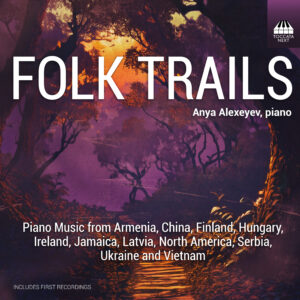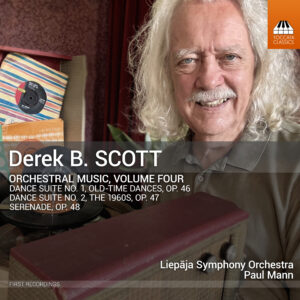Search Results for "fantastic four first steps online free 123movies" – Page 4
Showing results for fantastic four first steps online free movies movies
Charles Roland Berry: Orchestral Music, Volume One
Charles Roland Berry, born in Boston, Mass., in 1957, studied in California with Peter Racine Fricker and Paul Creston before supporting himself in a variety of jobs in the music world. As a composer, he believes in writing music that audiences might like to hear and musicians enjoy playing; as a result, all three works here have the open-air, open-hearted, even naïve, quality of much American orchestral music, film scores in particular – the kind of ‘Big Country’ sound that one can hear in Copland, Grofe, Harris, Moross and other painters of the wide outdoors.
Moravian Philharmonic Orchestra (Track 1)
Lviv National Philharmonic Orchestra of Ukraine (Tracks 2–6)
Polish Wieniawski Philharmonic Orchestra of Lublin (Tracks 7–10)
Joel Eric Suben, conductor (Track 1)
Theodore Kuchar, conductor (Track 2–10)
First Ladies: Three Romantic Violin Sonatas
One could hardly intuit from these fresh and flowing violin sonatas the obstacles their female composers had to face – family opposition for Mel Bonis in France and Ethel Smyth in England, institutional conservatism for Elfrida Andrée in Sweden. It has taken a century and more for that initial prejudice to fall away, and they are now beginning to attract a fair hearing for their music. What ultimately matters, of course, is not whether composers are male or female but whether they write good music, and these three sonatas – melodically expansive, rhythmically vivacious, harmonically warm – point to the musical riches that further exploration of their creators’ output will uncover.
Annette-Barbara Vogel, violin
Durval Cesetti, piano
MUSIC FOR MY LOVE: Volume Three
Celebrating the Life of Someone Special
100+ New Works for String Orchestra, Volume Three
When Yodit Tekle was diagnosed with stomach cancer in late 2014, her partner, Martin Anderson, who runs Toccata Classics, asked a few composer friends to write some music for strings to bring her comfort in her illness. As her life slipped away, he had the idea that she might be remembered in music and so he began to commission other pieces for string orchestra in her memory. To his surprise, almost everyone he asked generously agreed, and so the project snowballed: there are now over 100 composers who have written or agreed to write for it – in an undertaking that is probably unique in the history of music. This third volume presents eleven more pieces in an initiative which, in effect, transforms love into something you can hear.
(Learn more at musicformylove.org)
Ukrainian Festival Orchestra
Paul Mann
Singing Into Space: Spatially Conceived Music for Men’s Voices
The two composers heard on this album, Giovanni Gabrieli (1553–1612) and Giovanni Bonato (born in 1961) have more in common than their first names: both hail from the Veneto in north-east Italy – there is no documentation of Gabrieli’s birth, but he was probably Venetian, and Bonato was born in nearby Schio. Their music, too, is conceived in terms of its sound in space, with Gabrieli using the cori spezzati that sang from the opposing galleries of St Mark’s Basilica in Venice, and Bonato employing cori spazzializati to build a spatial dimension into the music itself. Juxtaposed, their styles offer a striking contrast, with Gabrieli’s bold declamations set against Bonato’s shifting, timeless suspensions.
Estonian National Male Choir
Mikk Üleoja, conductor
Hans Winterberg: Chamber Music, Volume Two
The life of the Prague-born composer Hans Winterberg (1901–91) reads like the outline of a detective novel. Having survived internment in the Terezín (Theresienstadt) ghetto as a Czech Jew, after the War he settled in Munich as a German citizen, and his music enjoyed a number of broadcasts – but after his death his estate disappeared into the vaults of a research institute and was placed under embargo, emerging only in 2015, since when recordings and performances have revealed him as one of the major Czech voices of the twentieth century. This first recording of three of his four string quartets – their language downstream from Janáček and Schoenberg, with folk-music roots refracted through mid-century Czech modernism – confirms Winterberg’s standing and underlines his importance as a lone survivor of the group of young Czech composers whose infinite promise was extinguished in the Holocaust.
Amernet String Quartet
Abram Chasins: Complete Music for Piano Solo
Abram Chasins (1903–87) began his career as a pianist and composer but as broadcaster and writer soon became one of the best-known cultural commentators in the USA. His output of music for solo piano – recorded here complete for the first time – dates from his first years in the public eye, and although he made little attempt to promote it himself, one sees instantly why it was so well received at the time: sweeping keyboard textures and grand Romantic gestures expressed in a style somewhere between Rachmaninov and Prokofiev, sometimes with echoes of Chopin and Gershwin. The works here range from witty character pieces, some intended for children, and affectionate tributes to other pianists to more serious abstract essays – and Chasins, too, was a member of the club of composers who wrote 24 preludes in all the major and minor keys.
Margarita Glebov, piano
William Wordsworth: Orchestral Music, Volume Four
The music of William Wordsworth (1908–88) – a great-great-grandson of the poet’s brother Christopher – lies downstream from that of Vaughan Williams and Sibelius; like that of his contemporary Edmund Rubbra, Wordsworth’s music unfolds spontaneously, as a natural process. This fourth volume of his orchestral works presents four works which are all symphonic studies in essence, each remarkable for its unassertive strength of purpose and its suggestion of a sense of scale beyond its actual dimensions – perhaps in part a reflection of the majesty of the Scottish Highlands where he made his home, and of the quiet resolve of his own character.
Liepāja Symphony Orchestra
John Gibbons, conductor
Līga Baltābola, violin (Track 10)
Moritz MOSZKOWSKI: Orchestral Music, Volume Two
The Polish composer Moritz Moszkowski (1854–1925) is best remembered for a handful of virtuoso piano pieces, but he also produced a substantial body of orchestral music, most of it unperformed for a century or more. The first volume in this first-ever survey of his orchestral output presented the monumental ‘Symphonic Poem in Four Movements’ Johanna d’Arc – a vast symphonic fresco depicting the life, death and transfiguration of the heroine of Schiller’s 1801 play Die Jungfrau von Orleans – and drew a warm welcome from the musical press. These two big-hearted Suites continue that process of discovery, opening a treasure chest of gorgeous melody and sumptuous orchestral writing that make these forgotten gems irresistibly attractive.
Sinfonia Varsovia
Ian Hobson, conductor
First recordings
The Estonian Cello
The strength and richness of Estonian classical music has its origins in two contrasting schools – the international outlook taught by Heino Eller in Tartu and the craftsmanship fostered by Artur Kapp in Tallinn. This album presents Eller’s complete output for cello and piano in its first recording, complemented by works by two of his more important students, Eduard Oja and Eduard Tubin. Villem Reimann and Herman Känd, both students of Kapp, had very different careers, Reimann an established professor in Soviet Estonia, and Känd dying unknown in American exile at only 46. This is the first recording of any of his music in over half a century.
Valle-Rasmus Roots, cello
Sten Lassmann, piano
Henri Hardouin: Complete Four-Part Masses, Volume Two
Henri Hardouin (1727–1808) was a chorister in Rheims Cathedral, rising swiftly through the ranks to become maître de chapelle – until the French Revolution disbanded religious establishments. As a priest he was in potential danger and seems to have gone into hiding until, in 1794, the death of Robespierre allowed him to resume his duties. Hardouin’s six four-part masses, published in 1772, are unusual for their time in being a cappella, and they enjoyed wide circulation in pre-Revolutionary France. Since then they have been roundly neglected – an omission this first complete recording intends to rectify.
St Martin’s Chamber Choir
Timothy J. Krueger, director
Michael Csányi-Wills: Songs With Orchestra
These orchestral songs by the English composer Michael Csányi-Wills (b. 1975) all deal with the subject of loss. In Three Songs – Budapest, 1944 Csányi-Wills uses documentation from his own family history to shadow the fate of Hungary’s Jews under the Nazis. Mortality is an omnipresent theme in A. E. Housman’s Shropshire Lad poems. And Elegy for Our Time sets an anguished lament by Jessica d’Este, sparked by the death of her granddaughter in a car crash. Csányi-Wills responds to the stimulus of these dark texts with music that is hauntingly lyrical and elegiac.
Ilona Domnich, soprano
Nicky Spence, tenor
Jacques Imbrailo, baritone
Chris McKay, horn
Londamis Ensemble
Mark Eager, conductor
First recordings
The Music of Franz Schmidt: Volume 1: The Orchestral Music
With Personal Recollections by Hans Keller and the Autobiographical Sketch by Franz Schmidt
Extent: 190 pages
Composition: Demy octavo ~ Illustrated ~ Bibliography ~ Index
Music from Malmö, Volume 1: Three New Concertos for Bass Clarinet
Concertos for bass clarinet are rare enough; this album brings three new ones to swell those limited ranks. It presents the fruit of a series of interlocking international co-operations, between orchestras in Sweden, the UK and USA, with American, British and Swedish composers and, at the heart of the undertaking, the bass clarinettist of the Malmö Symphony Orchestra, Carl-Johan Stjernström. All three composers exploit the huge range of colours the bass clarinet can offer, in music that ranges from the fierce and dramatic to the sunny and easy-going. The album also inaugurates a Toccata Next series providing a platform for the musicians of the Malmö Symphony Orchestra.
Carl Johan Stjernström, bass clarinet
Benjamin Schmid, violin
Musica Vitae
Malmö Symphony Orchestra
Joachim Gustafsson, conductor
Cello Accordion Ireland
The sound of the accordion is an underexploited resource in classical music; it is heard even less frequently in combination with other instruments. This recital of music by Irish composers for cello and accordion – from the nimble folk idiom of Turlough Carolan to the passionate Romanticism of more recent men and women – demonstrates just how effectively these colours blend together. And it is not just the medium which is unusual: much of this music is as good as unknown.
Adrian Mantu, cello
Dermot Dunne, accordion
Folk Trails
Folk-music has been a resource for classical composers since the beginning of the western tradition. The violin has its own folk heritage, of course, but since you can’t lug a piano from village to village, composers for that instrument have had to dig into their own musical roots to generate a folk-based keyboard repertoire, usually with refreshing results. This recital takes the listener on a journey that spans three continents, east to west, marrying the resources of the modern concert grand with the immediacy of the folk originals.
Anya Alexeyev, piano, primo
Leslie De’Ath, secondo
Derek B. Scott: Orchestral Music, Volume Four
Derek Scott, born in Birmingham in 1950, has a long history of engagement with the British music hall and other forms of light entertainment, as both historian and performer. Many of his own compositions attest to this interest in popular styles, with his craftsmanship and natural feeling for a good tune producing music of immediate appeal. One of his two recent Dance Suites takes its cue from ska, the twist and other enthusiasms from the early 1960s, and the other from older dance favourites. Time was when works like Arthur Benjamin’s Jamaican Rumba and Percy Faith’s arrangement of Alfvén’s Swedish RhapsodyNo. 1 could be heard on every domestic radio and record-player; these good-natured Dance Suites recapture some of that lost innocence and its relaxed energy – but his Serenade, another recent composition, touches gently on deeper feelings.
Liepāja Symphony Orchestra
Paul Mann, conductor
Stay In the Know
JOIN THE TOCCATA NEWSLETTER
"*" indicates required fields
By visiting our site, you agree to our privacy policy regarding cookies, tracking statistics, etc.
